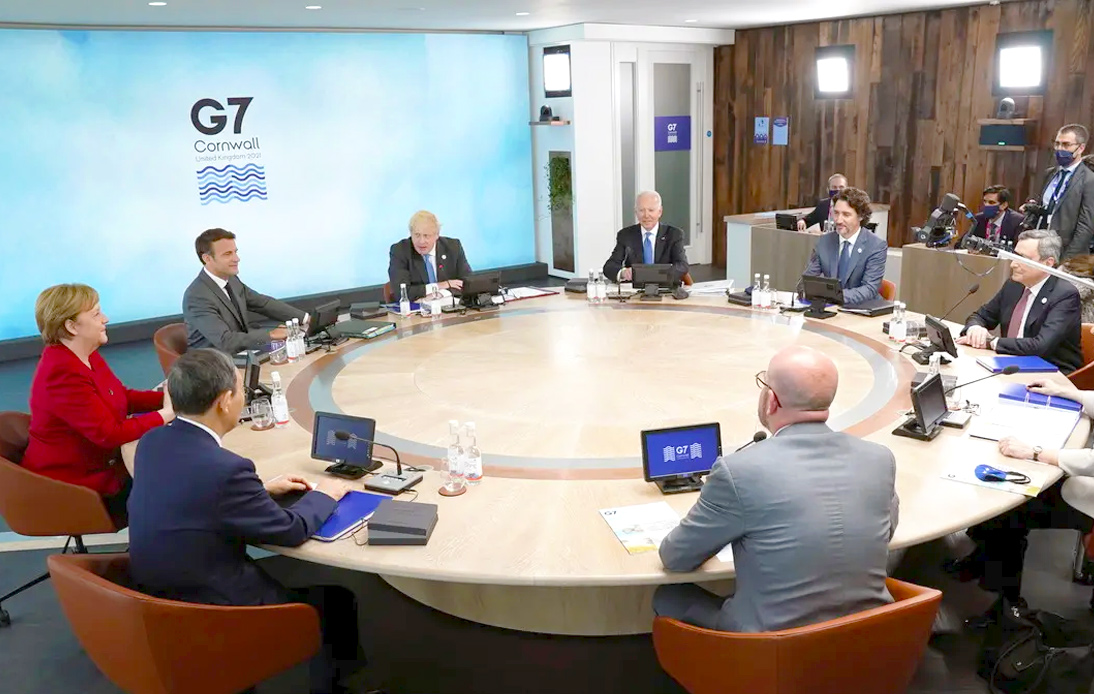
The leaders of the G7, a group made up of the world’s largest economies, have adopted a plan to rival China, aimed at helping low and middle-income countries to develop better infrastructure.
US President Joe Biden has called for support for the US-backed Build Back Better World (B3W) plan, saying it is a higher quality alternative to a similar Chinese program.
China’s Belt and Road Initiative (BRI) has funded plans to build ports, highways and trains in many countries, but the project has been widely criticized for burdening some nations with debt.
Mr. Biden was particularly critical of what he described as “China’s debt diplomacy.”
In a statement at the summit, the G7 leaders promised to offer a “values-driven, high-standard and transparent” partnership. However, they did not explain how the new G7 plan would be financed.
According to German Chancellor Angela Merkel, the group was not yet at a stage to release funding for its initiative.
The world’s seven richest democracies also pledged to develop a strategy to stop future pandemics. One suggested measure was reducing the time required to authorize and create vaccines and treatments for the virus to less than 100 days.
But the plan’s details will be officially released on Sunday as part of the summit’s final communiqué.
It’s not the first time that the western powers unite against the Asian country. Earlier this year, the United States, Canada, the United Kingdom and the European Union introduced coordinated sanctions against China, including travel bans and asset freezes that hit senior Xinjiang officials.
The sanctioned officials have been accused of severe human rights violations against Uighur Muslims.
Moreover, the Chinese government has been accused of carrying out forced sterilizations of Uighur women and separating children from their families. A BBC investigation published in February showed first-hand accounts of systematic rape, torture of detainees, and sexual abuse.
China announced its own sanctions on European officials in response to the Western leaders’ move.
Regarding the COVID-19 plan, the G7 will spell out a series of steps in the Carbis Bay Declaration on Saturday. They include: reducing the time to develop and license vaccines, treatments and diagnoses for future diseases to under 100 days, support to reform and strengthen the World Health Organization (WHO), and reinforce global surveillance laws and genomic sequencing capacity.
The statement is also expected to incorporate recommendations from a report created by international experts, scientific institutions, and governments.




















